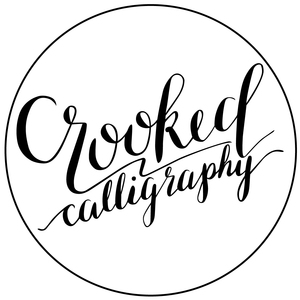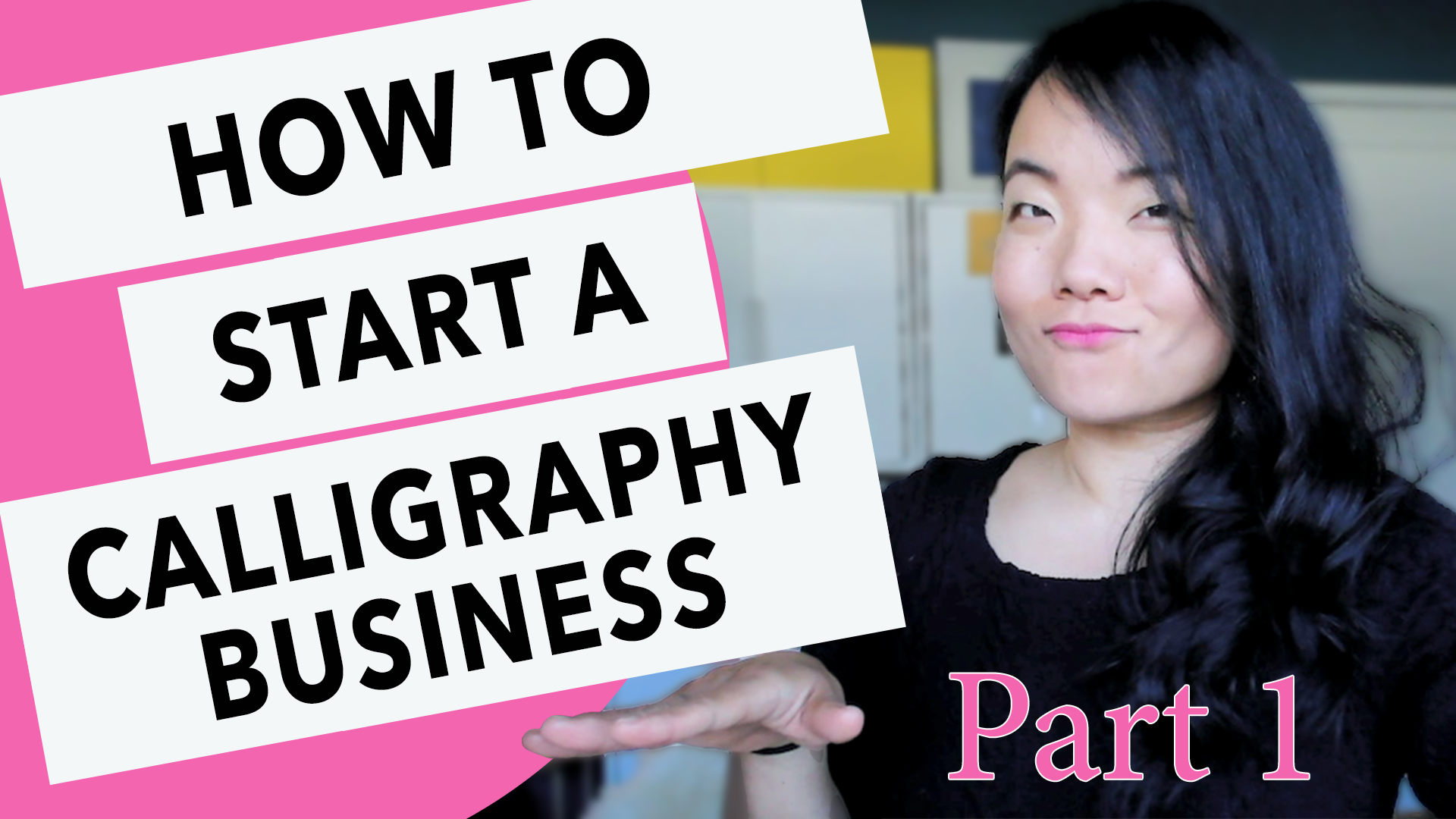Listen to a PODCAST version of this post on Apple Podcast or Spotify
“Can I sell some of my calligraphy without making it an official business?”
How do you decide whether to treat your craft as a hobby or register it as an official business?
It can be a tough decision - one that impacts your creative fulfillment, growth opportunities, and financial/legal consequences. So here’s some help from a former corporate lawyer on how to make that call.
*****DISCLAIMER: This information only applies to the U.S., where I’m based. Other countries will have their own requirements. I am not a practicing attorney or a tax or financial expert. This article is based on my own personal understanding and experience - please consult a professional for individualized advice.*****
Making Money from Calligraphy as a Hobby
SHORT ANSWER: You CAN sell some of your craft or artwork and still treat it as hobby, not a business. But there are some important things to consider:
Tax Considerations: Hobby selling is about covering the costs of your craft, not making a steady profit. While hobby income must be reported on your taxes, expenses for your hobby generally can't be deducted. (Consult a tax professional for individualized advice.)
Legal Requirements: Here in the U.S., there are generally rules at the state and local government levels that say when and how you can sell stuff for money. So you need to be aware of those as well.
1) The Benefits of Treating Calligraphy as a Business
Look, it can feel daunting, but turning your calligraphy into an official business can come with some real financial advantages and opportunities for growth.
Deductible Expenses: Unlike hobbies, an official registered business allows you to deduct related business expenses, which can reduce your taxable income.
Legitimacy and Discounts: Operating as a business can grant access to wholesale prices from certain vendors. And, if you’re ever planning on selling at craft fairs or markets, you may be required to obtain a seller's permit.
Asset Protection: Forming an LLC can protect your personal assets from business liabilities.
IRS Guidance
The federal tax authority here in the U.S. looks at several factors to determine if your activity is a hobby or business, focusing overall on your intent to make a profit.
Professionalism: Keeping accurate records and running in a business-like manner.
Effort Towards Profitability: Time and effort indicate an intention to make a profit.
Dependence on Income: Whether the income is a significant part of your livelihood.
Knowledge and Adaptation: Applying business knowledge and adapting strategies for profitability.
2) Drawbacks of Treating Calligraphy as a Business
So, there are definitely benefits to creating an official business… but of course, there are also downsides to consider:
Paperwork: Legit businesses have a certain amount of paperwork they have to deal with - it’s just unavoidable. You may have to register with several different federal, state and local authorities. And you also have to keep financial records of expenses, sales and profits.
Fees: Depending on where you live, it can be quite expensive to maintain a business entity (ex: California's annual $800 tax just for having an LLC).
Emotional/Mental Impact on YOU: The shift from hobby to business WILL affect your relationship with your calligraphy practice. For some, it makes calligraphy more exciting. But, for others, it can take away some of the playful passion of a craft that’s just for enjoyment.
Legal and Tax Requirements and Risks
SUPER IMPORTANT: Be aware that there are official legal and tax REQUIREMENTS whenever you sell things to make money. This article is intended to be a helpful resource, but please do your own research into your local, state and federal requirements.
But I know rules can be intimidating… so here’s a helpful way to think about it, from a former lawyer.
When considering the law, think about the underlying INTENT behind the rule or requirement:
IRS intent - They don’t want you to be able to deduct all of your expensive hobby stuff so you can pay less taxes. Imagine buying a GlowForge just for fun and being able to deduct it from your taxes… doesn’t make sense, right? If you’re going to have the advantage of deducting your business expenses, the IRS wants to make sure you’re actually conducting a legit business and trying to make a profit.
Local Government Intent - They don’t want just anyone going out and selling random stuff to people and promising delivery of services, without them being properly permitted and inspected and on record. They want to protect consumers, and rightly so!
Considering the INTENT of the law will help you to weigh your RISKS.
Example: In California, you are required to obtain a Seller’s Permit if you have more than two garage sales a year. I bet there are tons of people who have had three garage sales in one year and did NOT get a permit…. and there were zero consequences. Why? Because it’s probably not in the local government’s INTENT or interest or resources to go after every single tiny violation of this rule. What they’re after is larger operations who are running multiple garage sales year after year, and making a real business of it.
What does this mean for you? If you don’t get a Seller’s Permit, but you’re only selling a few calligraphy poems here and there to friends and family… there’s probably very little risk. There’s also very little chance that you will be sued while selling a few calligraphy things here and there, so consider your real risks before deciding you need an LLC to protect your personal assets.
3) Two Simple Pathways to Monetize Your Calligraphy
As a Hobby: Keep it easy with a simple spreadsheet to track your income and expenses, focusing on enjoying your craft.
As a Business: A Sole Proprietorship is the simplest business and tax format. Keep your personal and business finances separated, and consider using Quickbooks Self Employed to track your sales and expenses.
Whether you choose to pursue calligraphy as a hobby or a business, understanding the implications of each can help you make informed decisions that align with your goals, lifestyle, and legal obligations.
Want to start a Calligraphy Biz?
But feeling overwhelmed by all the legal and financial requirements? I break it all down in this helpful blog post. 👇
If this post was helpful, drop a comment and let me know!
Love,
Hey I’m Shinah!
Harvard lawyer turned sassy calligrapher and multi-million-dollar business owner.
I make calligraphy & biz more DOABLE, so you can go after your dreams!
Other posts you might like 👇








Here’s my best advice for making the most of your craft fair or vendor experience, based on my own success at various markets all around Los Angeles. These markets helped me make money, find customers and really launch my business out into the world!